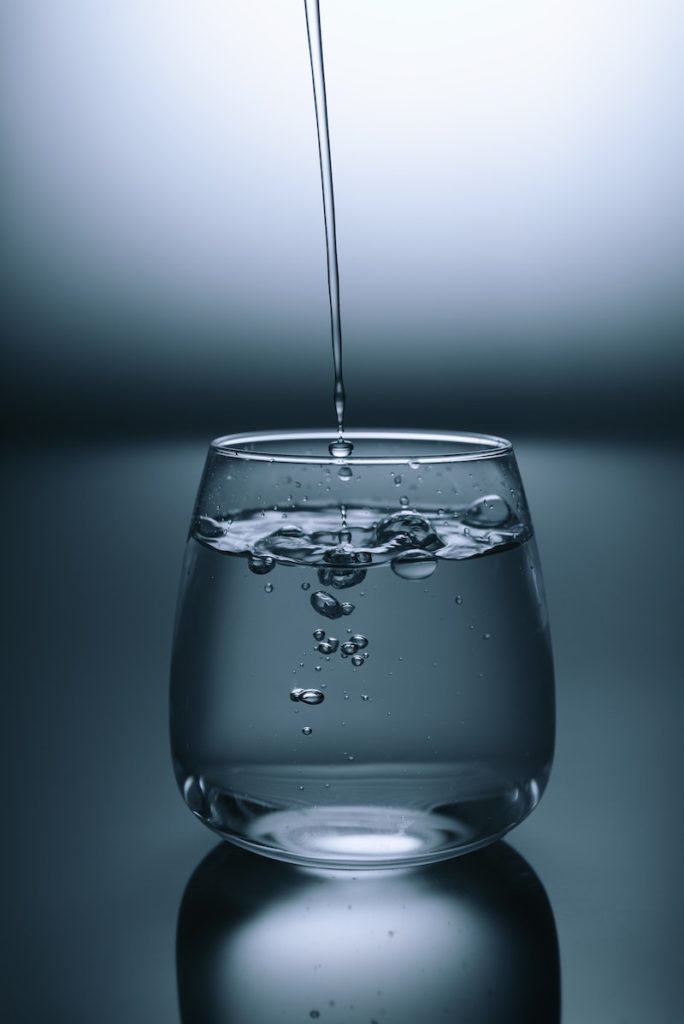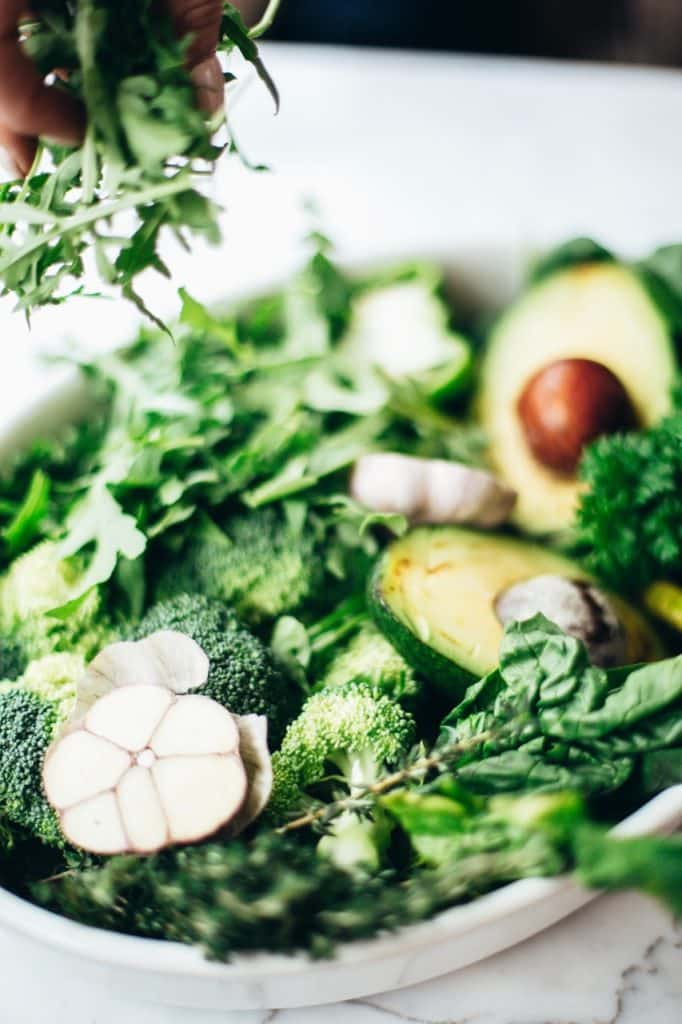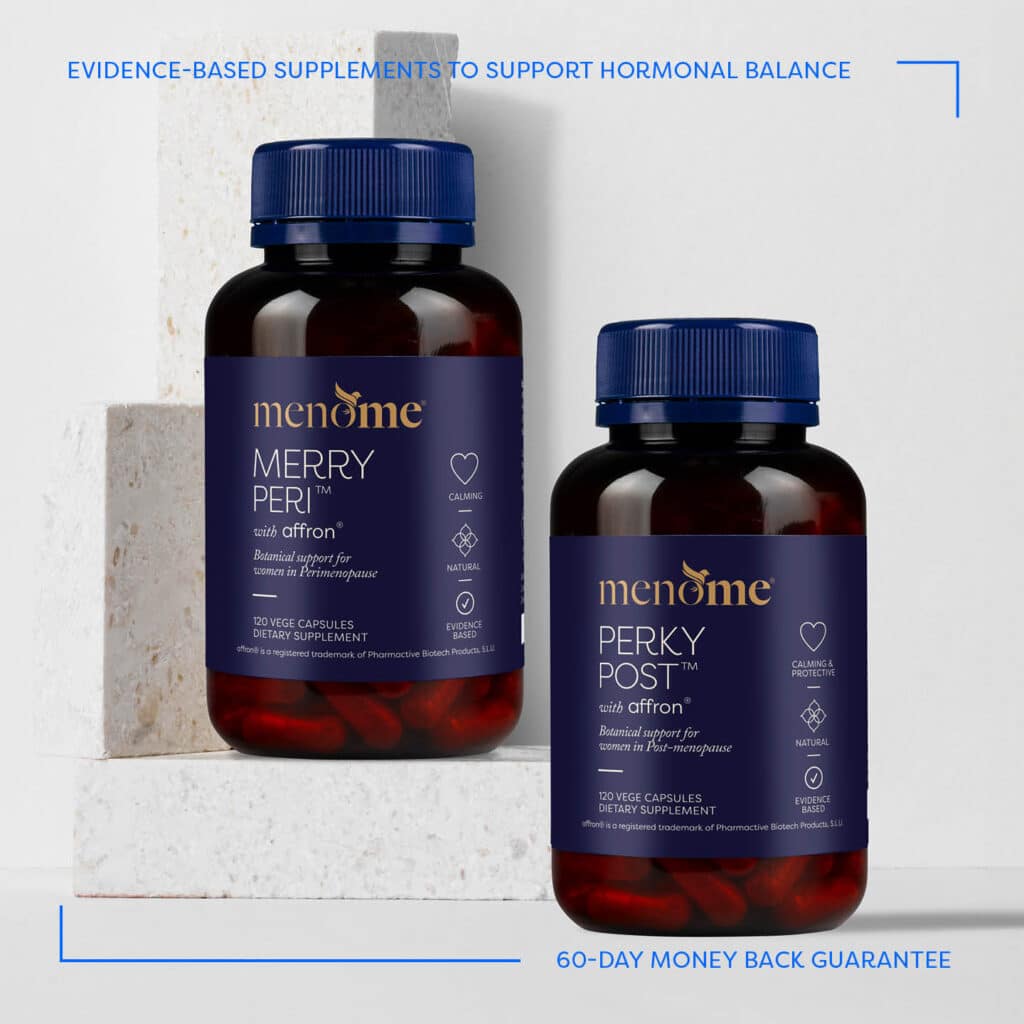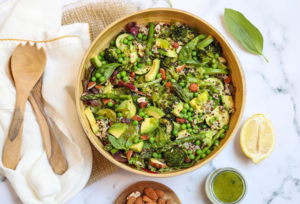We’ve heard it time and time again menopausal weight gain is your greatest frustration. Especially around the middle.
And even if you’re ‘not there yet’, now’s the time to get sorted because prevention is always better than cure.
What causes menopausal weight gain?
The truth is, if you feel like you’ve put on weight or you’re clothes are tighter you’re likely not imagining it. Because there is a slew of things going on that contribute to menopausal weight gain.
Furthermore, hormonal shifts cause a redistribution of body fat from the hips and thighs to the waist. And lean muscle mass declines.
In addition, hormone or blood sugar imbalance, an impacted gut, liver, thyroid or HPA (hypothalamic–pituitary–adrenal) axis – mission control for your hormones – as well as stress reactions, digestion, immunity and energy storage and expenditure contribute.
And your liver may be loaded down with too much caffeine or alcohol – and it doesn’t do well with saturated fats and processed carbs either. Or, you may have developed food intolerances (not uncommon in midlife) or living with chronic underlying stress.
Did you know? The biggest culprits when it comes to food sensitivities and intolerance are gluten and dairy.
And then there’s out-of-kilter cortisol, thyroid, insulin and estrogen. Phew! Turbulent waters indeed.
How much weight will I put on?
The Australasian Menopause Society says the average 45-55-year-old woman gains 2.3kg. Although, this can be more for some and for others menopausal weight gain isn’t an issue.
Bear in mind, it’s not only about peri/menopause – ageing, genetics and lifestyle also play a role.
Menopausal weight gain means things have changed

The old way of calories in versus calories out isn’t the way forward.
In fact, the eating less, exercising more prescription is why so many popular ‘diets’ don’t work long-term. It’s too oversimplified.
What’s more, if you restrict calories, you can predispose the body to not burn fuel (food) properly. As a result, leptin – the hormone that signals when you’re full – may decrease so you don’t get the ‘stop eating’ message.
What’s the solution?
You need to get to the root cause because in all likelihood menopausal weight gain is a symptom. A sign that something in your body is out of balance.
This is hardly surprising as hormonal imbalance due to shifting sex hormones, thyroid, insulin and cortisol all influence how the body uses fuel.
Menopausal weight gain & 3 ways to lose it
The good news is, that there’s plenty you can do to take charge of your seemingly ever-expanding waistline.
And you’ll be right on target if you prioritise food first. In similar fashion, you need to understand some dietary tweaks are probably required. In a good way, no starving required!
Related: 5 ways your diet should change
1. Go for operation hydration

Hydration, hydration, hydration. To repeat. Hydration.
By this, we mean drinking pure, unfiltered water regularly.
While the amounts required are individual the old adage of eight glasses daily is a guideline. Here’s a great calculator.
As you no doubt know, the body is approximately 70% water but you may not realise the brain is 90%.
So your inability to think clearly, not to mention fatigue and feeling less than sprightly may mean your brain is thirsty!
The role of water:
- carries nutrients to our cells
- helps lose and manage weight
- ups energy and mental clarity
- aids digestion
- minimises constipation and bloating
- takes out the trash (so to speak) by removing unwanted waste through peeing, pooping and perspiring
- helps regulate body temperature (hello hot flush!)
- cushions and lubricates joints
- mitigates the risk of UTIs (urinary tract infections)
From a peri- and post-menopausal point of view, hot flushes and night sweats can make us feel dehydrated. Water also helps with many symptoms such as constipation, bloating, headaches and migraines.
Of course, it will also help you to get a handle on that pesky belly.
Tip: Keep a bottle or jug handy at all times and remember, herbal teas count.
2. PPFF – Phytoestrogens, Protein, (Healthy) Fat, Fibre
Tweaking your diet to be Mediterranean style and dominant in PPFF will help you million times over in your quest to lose weight after 40.

Phytoestrogens
Phytoestrogens include foods such as lentils, chickpeas and soybeans, carrots, garlic, and onions, Then there are nuts and seeds such as walnuts, almonds, sunflower and sesame seeds. Oats, rice, tofu and stone fruit are also phytoestrogens.
They’re abundant in naturally occurring estrogens (phyto = plant) similar in structure to your body’s natural estrogen and bind to the same receptors.
Download a copy of our FREE Phytoestrogen Food List here. 😊
Jean Hailles women’s health centre in Australia, explains it well.
“In a perimenopausal or post-menopausal woman, when her body’s estrogen is low, phytoestrogens may help ease the symptoms of low oestrogen in about one in three women. This is because about a third of the population has the specific gut bacteria that can metabolise the isoflavones (a type of phytoestrogen) in soy to a more potent phytoestrogen called equol. The amount of isoflavones needed daily to achieve therapeutic effects is contained in about 200g of tofu, or 100g of tempeh.”
Protein
You need more protein during peri- and post-menopause. It’s the critical building block of your hormones and muscle mass and an essential weight management tool. Not only that protein helps with your energy levels, sleep and mood
Indeed, a 2021 study found that sarcopenia, a decline in skeletal muscle mass and function was 9% lower in late peri- and post-menopausal women than early perimenopausal women.
From a weight loss perspective, protein will keep you fuller for longer. It’s also thermogenic (heat generating) so increases metabolism. And it helps to keep blood sugar stable and curb cravings.
Getting into the habit of front-loading protein is an excellent idea. Begin your day with a protein punch, and continue to eat it throughout the day. As a result, you should feel more energetic and calm. For weight loss, always pair it with good fat. At night, due to its thermogenic nature, have a smaller portion three to four hours before bed so it doesn’t keep you awake.
Protein suggestions:
- Have eggs or scrambled tofu for breakfast.
- Pop a smear of good quality nut butter or cottage/ricotta cheese on fruit snacks.
- Choose hormone-free chicken or fish.
- Lentils, beans and chickpeas make a great curry foundation.
- Edamame beans add a punch of protein to a crisp salad.
- Chia seeds and oats are a good choice.
Tip: The recommendation is to consume 25g of protein with each meal. An easy way to calculate this is to use a (top of) palm-sized portion. If you do strength training or HIIT increase the amount and pair it with complex carbs. Exercise physiologist and nutrition scientist, Dr Stacy Sims recommends 2 to 2.2 grams per kilogram of body weight if you’re active.
Fat
If you’re of the generation who grew up being told to avoid fat, hear this! Healthy fat does not make you fat.

In fact, it helps to keep you sated and build hormones. Especially if the fat you choose is extra virgin olive oil – it provides omega-3 essential fatty acid (EFA) which our bodies can’t make themselves.
Healthy fat tastes good so it’s super-satisfying. Moreover, like protein, it’ll keep you fuller for longer and lessen blood sugar spikes. As noted above omega-3 is a great choice because as well as helping with your weight it reduces the risk of type 2 diabetes, belly fat, and insulin resistance. It’s also a potent anti-inflammatory.
Additionally, consuming fats is beneficial to your joint health and your skin thanks to the anti-inflammatory effect.
Healthy fats include avocados, extra virgin olive oil, hemp seed oil, nuts and seeds and oily fish. And, no coconut oil is not a good choice as it’s a saturated fat which impacts your liver.
Tip: always choose full-fat products. Low-fat versions tend to have some goodness removed in the process and unwanted ingredients added.
Fibre
You might be surprised to learn that most of us don’t eat enough dietary fibre. Yet it’s key to weight loss, health and hormonal balance.
According to NRV (Nutrient Reference Values for Australia and New Zealand), you should be eating 25g per day.
Dietary fibre is the indigestible part of fruit, vegetables and whole grains like oats, quinoa and legumes.
There are two types of fibre:
- Soluble – helps keep blood sugar balanced, aids good digestion and keeps you fuller for longer. It also increases insulin sensitivity and improves gut health.
- Insoluble – soaks up water, softening your poop and cleaning out your colon. This helps to remove waste and excess toxins.
Tip: eat plenty of fruits, vegetables and complex carbohydrates such as oats, nuts and beans.
Related: How to make a hormone-friendly green salad with roasted veg
3. Keep calm & carry on
There are two hormones you need to keep calm for weight management. Insulin (blood sugar) and cortisol (stress/survival).
Insulin
Known as the fat-storage hormone, insulin resistance is common in peri- and post-menopause. This is because as you grow older and enter perimenopause your body becomes less sensitive to insulin. Partly because estrogen helps optimise insulin.
Insulin’s role is to escort glucose released from eating food to the cells to be used for energy. But when we become insulin resistant the cells can’t absorb the blood glucose. As a result, blood sugar levels spike and the liver converts it into fat.
The fastest way to insulin resistance is to eat a diet high in refined carbohydrates, sugars, processed foods and/or alcohol. This will cause large spikes in blood sugar and send insulin haywire. And when you’re post-40 the number of processed foods that trigger this doesn’t equate to a lot.
NB: Carbohydrates (except fibre) are turned into sugar by the body. Eating refined carbohydrates such as white flour pasta, cakes, biscuits and bread puts you on the fast track to insulin resistance.
As well as causing sugar addiction, fatigue, cravings, irritability, mood swings and…wait for it…belly fat.
Over time, insulin resistance in post-menopausal women can lead to an increased risk of heart disease, breast cancer, osteoporosis diabetes, dementia and Alzheimer’s.
Red flags are:
- if you become tired after you eat
- you’re prone to weight gain
- you’re addicted to carbs and sugar
Tip: Move after you eat (with good food choices). Go for a walk, practise high-intensity interval training (HIIT), dance or swim. This will help bring your blood sugar levels down.
Cortisol

Cortisol is known as the stress hormone and it’s produced by the adrenal glands. Tiny endocrine glands that sit atop our kidneys.
Cortisol’s essential to your circadian rhythm. It wakes you up and gets you going in the morning. However, in the 21st century, we tend to have too much of it for too long which can cause all sorts of problems at menopause.
For example, cortisol can keep you awake at night as well as disrupt digestion and metabolism making you store more fat around the belly.
The kind that’s super hard to shift.
And if you’re having trouble sleeping the adrenals will release more cortisol.
Oh, and remember when we were talking about insulin resistance above?
The adrenals release extra cortisol when they perceive you’re in danger (stressed). This process then dumps a swag of sugar into your blood.
Cortisol is also your survival mechanism so it thinks it’s doing you a favour by giving you the fuel to run for your life. And the body doesn’t differentiate between over-exercising, worrying about work or being chased by a bear. It’s all the same stress to cortisol!
Therefore, as you’re more sensitive to stress during menopause cortisol is often in low-grade survival mode much of the time.
This can be one reason you can’t shift your weight – cortisol’s holding onto it for your survival. In light of this, this is a hormone to keep as calm as possible to avoid menopausal weight gain.
Tip: Mindfulness, meditation, breathwork and regular (not excessive) movement are key to calming cortisol.
Related: Seven wellness pillars for your best menopause
Conclusion
Perimenopause and post-menopause change your body shape. And while it can also see you gain weight this isn’t inevitable.
To repeat, your hormones aren’t the only reason for menopausal weight gain – ageing, genetics and lifestyle play a role too.
It’s important to realise it’s a complicated soup (and we didn’t even touch on the thyroid!) because there is so much going on. But with a little understanding of what’s happening in your body, you can navigate menopausal weight gain.
Another key point is that the goal posts have changed and it’s not quite as simple as eating less and moving more. And it’s certainly not about deprivation (which will backfire).
Of course, your body changes but you do not need to accept being overweight. Nor should you.
We live in body-positive times which is a wonderful thing! But it must be remembered that menopausal weight gain can increase health risks. Equally important is that abdominal fat, which is also known as visceral fat is metabolically active. That is to say it increases the risk of heart disease, type 2 diabetes and some cancers.
For this reason, we suggest putting the focus on being healthy rather than doing up your jeans.
Here are a few parting tips to help you on your way:
- Eat mindfully (chew your food well)
- Finish eating when you’re 80% full
- If you love your wine try going without it for 21 days. You can do anything for 21 days, right?
- Add, don’t subtract i.e. increase your lean protein and fibre. Try having a palm of protein and fibre and a thumb of healthy fat at each meal.
You’ll naturally feel more satisfied. Therefore, when it comes to being tempted by something like potato chips, you’ll happily pass them by.
You can beat this menopausal weight gain thing – truly!
And we’re here to help you along the way.
Main image: Polina Tankilevitch @pexels












